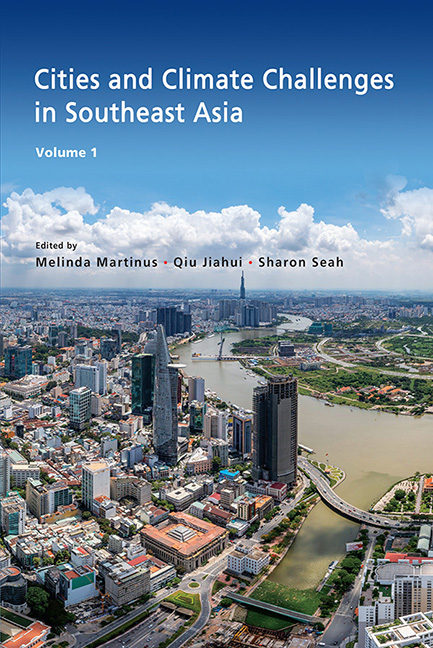8 - Knowledge Systems Approach to Democratic Climate Change Adaptation in Urban Historic Environments
Published online by Cambridge University Press: 09 January 2024
Summary
Summary:
■ Historic urban landscapes are complex, dynamic, linear systems with infinite interconnections and relationships working with, alongside and against each other.
■ Floods or flash floods can be seen both as manifestation of disruptions across multiple intersections that comprise the urban environment and a consequence of the systems behaving exactly as they were designed to.
■ This chapter explores the possibility of using flood mitigation and management strategies and approaches, not just as a means to solve problems but as vehicles of systemic change by looking at flood mitigation and management practices in George Town, Chennai, India and George Town, Penang, Malaysia.
■ The official strategy towards flood mitigation and management in both George Towns has been a technology-centred approach focused on engineering resilience into existing systems to enable them to face perturbations and come back to equilibrium. There is a lack of acceptance of community knowledge and collective intelligences within flood mitigation measures.
■ The knowledge systems approach, envisaged as a five-phase cyclic dynamic feedback loop, recognizes the need to look beyond improving and collating existing knowledges, towards “co-creating” new knowledge systems.
INTRODUCTION
Cities are complex systems with “infinite interconnections” (Burns 2007), and contain systems and subsystems, working with, alongside and against each other (Flood 2010). Historical cultural landscapes connect complex knowledge systems, tangible and intangible, of the past in the present. Urban flooding is seen as a systemic problem and a manifestation of disruptions within these complex systems and their connections (Rehman et al. 2019). Article 6 of the United Nations Framework Convention on Climate Change (United Nations 1992) enshrines the promotion and facilitation of “public participation in addressing climate change and its effects”. Mitigation and management of urban flooding demand multi-pronged solutions that include all parts of the government, civil society, media, public and private sector organization and all levels of the community. However, decision-making processes that do not recognize the subtleties and complexities of the social, cultural, political and economic patterns only pay lip service to the idea of the community engagement process. Such simplistic approaches to participatory decision-making has resulted in the exclusion of the economically and socially vulnerable frontliner, facing the brunt of urban climate change impacts from participating in the decision-making process.
- Type
- Chapter
- Information
- Cities and Climate Challenges in Southeast Asia , pp. 106 - 124Publisher: ISEAS–Yusof Ishak InstitutePrint publication year: 2023

